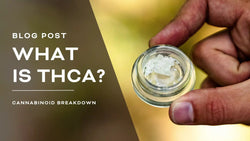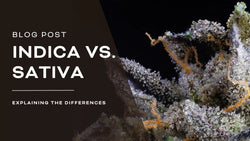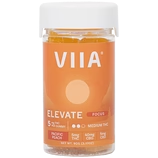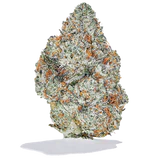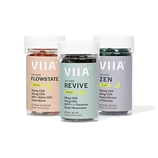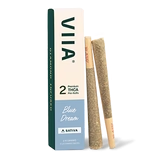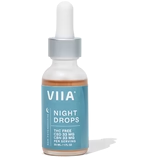 delta-9, thca
delta-9, thcaTHC vs THCA: What Is The Difference?
Understanding the difference between THC (tetrahydrocannabinol) vs THCA (tetrahydrocannabinolic acid) is important because these two cannabinoids offer unique experiences in the body, and they may have varying legal statuses, depending on where you live.
The first major distinction between THC and THCA is that THC is psychoactive, and THCA is not.

But there's a lot more to uncover here.
The good news is that we can break down the world of THC vs. THCA, unraveling their distinctions to equip you with the knowledge to make well-informed choices regarding your cannabis consumption.
THC vs THCA - Key Differences
- THC (tetrahydrocannabinol) is the primary psychoactive cannabinoid in cannabis, known for its intoxicating effects, while THCA (tetrahydrocannabinolic acid) is the non-psychoactive precursor to THC found in raw cannabis plants.
- THC is associated with euphoria, relaxation, increased appetite, and potential therapeutic benefits, making it popular among recreational users and individuals seeking its medicinal properties.
- THCA, in its raw form, does not produce psychoactive effects, but research is finding that it may hold potential health benefits such as anti-inflammatory and neuroprotective properties.
- Legalities surrounding THC and THCA vary, and considering factors like local laws and potential drug testing is essential when making choices about personal cannabis consumption.
What Is THC?
THC (tetrahydrocannabinol), or Delta 9 THC, is the most commonly known compound that the cannabis plant produces and is also the primary psychoactive cannabinoid — and this small compound is mainly responsible for the marijuana plant's legal issues.
When consumed, THC interacts with specific receptors in the central nervous system, the CB1 receptor, which is part of the endocannabinoid system.

The activation at the CB1 receptor sites triggers a series of biochemical reactions that involve changes in perception, enhanced pleasure, loss of coordination, and deep relaxation that is often associated with being high.
But aside from its recreational uses, THC has been extensively studied for its potential therapeutic benefits.
In fact, it's shown promise in supporting relief from pain, nausea, muscle spasms, and increasing appetite [1,2]. There's ongoing research exploring THC's potential for various medical conditions, from chronic pain to multiple sclerosis and alleviating chemotherapy side effects [3, 4, 5]. The most common types of THC products that you'll find include flower, edibles, concentrates, and even beverages.
The cannabis plant's THC levels are also the main distinction between a federally illegal marijuana plant and legal hemp crops.
Marijuana is defined as any cannabis plant with more than 0.3% THC by dried weight. Unless you live in one of the 12 states that legalized recreational cannabis or have access to a very difficult-to-attain medical program, cannabis-derived THC and its elevating effects are likely out of your reach.
What is THCA?

THCA stands for tetrahydrocannabinolic acid, and it's the precursor cannabinoid to THC, or what's known as a cannabinoid acid — But this isn't limited to THC.
Cannabinoids typically exist in their acidic forms before decarboxylation, a chemical process that removes a carboxyl group from the molecule.
While decarboxylation sounds like a big word, it's essentially a scientific way to say "heating the molecule until it changes its molecular shape." This can be done by cooking, baking, smoking, or vaping.
Removing this carboxyl group transforms the cannabinoid acid into its corresponding neutral cannabinoid. For example, THCA converts to THC, CBDA (cannabidiolic acid) converts to CBD, CBGA (cannabigerolic acid) converts to CBG, and so on.

Cannabinoid acids are typically abundant in raw or unheated cannabis plants. Up until recently, there hasn't been much research on cannabinoid acids because they were thought of as "unactivated cannabinoids."
However, with more research, we're finding that cannabinoid acid forms may offer unique potential benefits that differ from their counterparts.
For instance, the THCA cannabinoid is non-psychoactive — which is why eating raw weed isn't going to get you high — but the THCA molecules may still interact with the endocannabinoid system to produce some potential health benefits.
Related Article: What is THCA? Shaping the Future of the Hemp Industry
Different Effects Between THC and THCA
Psychoactive Effects
The psychoactive effects are the most notable difference in experience between the two cannabinoids.
The THC molecule's ability to interact with the brain's cannabinoid receptors, primarily the CB1 receptors, in a way that triggers the release of neurotransmitters and alters brain function. This interaction leads to the characteristic psychoactive effects associated with cannabis use, such as euphoria, relaxation, and changes in perception.
In contrast, consuming THCA, even in large quantities, will not result in any intoxicating effects. However, the moment you expose the THCA molecules to heat, you transform them from their acidic form to psychoactive THC.
Body Effects
In terms of effects, THC is famous as the "bliss" cannabinoid. Its unique interactions with the CB1 receptors induce euphoria, relaxation, and increased appetite. It's commonly used to address stress, support discomfort, and sleep, and may help some people enjoy the taste of their meals by heightening the sensory experience and taste perception.
Because THCA molecules don't produce prominent effects on the central nervous system, their effects are much more subtle.
THCA was once believed only to have value as a THC precursor but is gaining attention for its own potential health benefits.
Research suggests that THCA exhibits anti-inflammatory properties, making it potentially valuable for managing conditions like arthritis or inflammatory bowel disease [6, 7]. It may also have neuroprotective effects and contribute to the overall wellness benefits of whole-plant cannabis, which may be useful for those not wanting to experience the intoxicating effects of THC.
Presence In Cannabis Flowers
The presence of THC and THCA in cannabis flowers can vary depending on factors such as the strain, cultivation methods, and harvest time.
When cannabis flowers are freshly harvested, and in their raw state, they predominantly contain THCA. THC is present in minimal amounts, if at all, as it's a result of the decarboxylation process that occurs through exposure to heat or time.
However, there are some cannabis strains that are specifically bred and cultivated to have higher levels of THC. These strains are often favored by recreational users seeking the elevating effects of THC.
Legal Status
The legal status of THCA and THC can vary depending on the jurisdiction and the specific regulations in place. But we'll broadly look at the differences between THC and THCA in the eyes of federal law.
THC's legal status is often more strictly regulated due to its psychoactive effects. THC is classified as a controlled substance in many countries and regions and is subject to specific laws and restrictions. And in the eyes of the United States federal law, it remains a Schedule I substance.
THCA, being the precursor to THC, is a non-psychoactive cannabinoid and does not produce intoxicating effects in its raw form. There's no direct mention of THCA in the Controlled Substances Act, and as a result, the legal status of THCA differs from THC.
As long as it's hemp-derived and the product does not contain more than 0.3% THC by dried weight, it's technically federally legal.
For many people, THCA products are the only legal way they can enjoy the intoxicating cannabis buzz — in which they'd have to subject their product to heat to transform THCA into THC.
Related Article: Is THCA Legal? Legality Of THCA By State

Choosing Between THC and THCA
When deciding between THC and THCA products, you might want to think about a few things:
- Is THC legal where you live?
- Are you looking to experience the intoxicating effects?
- Do you have specific wellness goals you're looking to address
- Are you subject to drug testing?
First, it's important to find out the status of THC in your jurisdiction, as cannabis laws can vary from one state to another—even in municipalities. If THC is legal where you live, you have more options between THC vs. THCA.
Another key consideration is whether you're seeking the intoxicating effects commonly associated with the cannabis plant. If you aren't a fan of the elevating effects of THC, then the raw, cannabidiolic form is your best option, or you can look at other non-psychoactive hemp cannabinoids.
But if THCA is what you're after, look for fresh cannabis juice, raw tinctures, high THCA flower, and raw cannabis extracts. Make sure the product comes with third-party testing to verify the cannabinoid content.
The key is not to expose the THCA molecules to heat—otherwise, you will end up with THC and will get high.
Alternatively, there are some cannabis consumers who are looking to experience the psychoactive effects of marijuana, but it might not be legal where they live.
Some THCA products, made from Farm Bill-compliant hemp, are designed to be heated to convert THCA into THC, which may be their only federally legal option for a legal cannabis buzz.
The chemical reaction (decarboxylation) that transforms THCA into THC affects the shape of the molecules and, in turn, may subtly affect the chemical compounds' interaction in the endocannabinoid system. This means that depending on your wellness goals, you may be more swayed to use one cannabinoid over the other.
Lastly, if you expect that you will be tested for marijuana use, you should not consume smokable THCA products. Regardless of whether it's derived from hemp or marijuana, the THC molecules are identical once THCA is exposed to heat. This means that consuming heated THCA products can result in a positive drug test.
Summary
Understanding the difference between THC and THCA is crucial if you're interested in cannabis.
THC is the big player that brings on the well-known "high" and has been extensively researched for its potential therapeutic effects. It's the one that gets you feeling euphoric and relaxed and may help with various health concerns.
On the other hand, THCA is found in raw cannabis. It doesn't produce psychoactive effects, but researchers are uncovering that it may still hold potential health benefits.
Remember, the legal status of THC and THCA can vary depending on where you are, and you should also consider the possibility of drug tests.
By being informed about these differences, you can make wiser choices that align with your goals, preferences, and legal obligations. Don't hesitate to reach out to healthcare professionals or cannabis experts for personalized advice and stay updated on the latest regulations in your area.
Frequently Asked Questions About THC Vs. THCA
Resources
- Parker, L. A., Rock, E. M., & Limebeer, C. L. (2011). Regulation of nausea and vomiting by cannabinoids. British journal of pharmacology, 163(7), 1411-1422.
- Riggs, P. K., Vaida, F., Rossi, S. S., Sorkin, L. S., Gouaux, B., Grant, I., & Ellis, R. J. (2012). A pilot study of the effects of cannabis on appetite hormones in HIV-infected adult men. Brain research, 1431, 46-52.
- Überall, M. A. (2020). A review of scientific evidence for THC: CBD oromucosal spray (nabiximols) in the management of chronic pain. Journal of pain research, 399-410.
- Jones, É., & Vlachou, S. (2020). A critical review of the role of the cannabinoid compounds Δ9-tetrahydrocannabinol (Δ9-THC) and cannabidiol (CBD) and their combination in multiple sclerosis treatment. Molecules, 25(21), 4930.
- ORR, L. E., & McKERNAN, J. F. (1981). Antiemetic effect of Δ9‐tetrahydrocannabinol in chemotherapy‐associated nausea and emesis as compared to placebo and compazine. The Journal of Clinical Pharmacology, 21(S1), 76S-80S.
- Palomares, B., Garrido‐Rodriguez, M., Gonzalo‐Consuegra, C., Gómez‐Cañas, M., Saen‐oon, S., Soliva, R., ... & Muñoz, E. (2020). Δ9‐Tetrahydrocannabinolic acid alleviates collagen‐induced arthritis: Role of PPARγ and CB1 receptors. British journal of pharmacology, 177(17), 4034-4054.
- Ambrose, T., & Simmons, A. (2019). Cannabis, cannabinoids, and the endocannabinoid system—is there therapeutic potential for inflammatory bowel disease?. Journal of Crohn's and Colitis, 13(4), 525-535.
